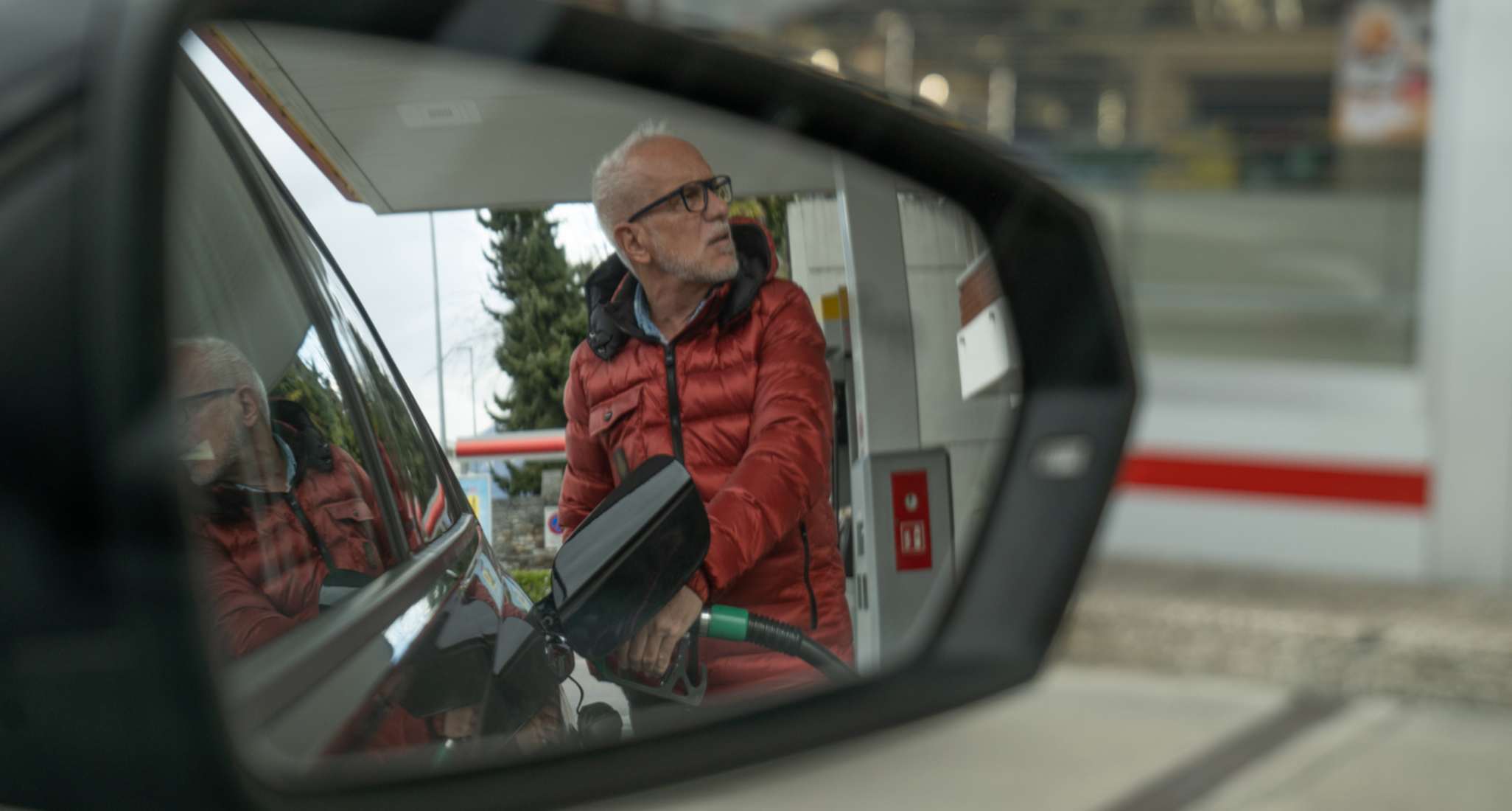Petrol and diesel prices in Switzerland: current developments
The price of gasoline is constantly changing. Developments in the international financial market and the oil market are mainly responsible for the fluctuations. Here we provide an overview and information about the current petrol price in Switzerland.

22.02.2023

iStock / swissmediavision
Petrol station comparison in Switzerland
Fuel prices vary from region to region and from company to company. The Comparis petrol price radar shows all petrol stations in Switzerland at a glance. This helps you find the cheapest petrol station in your area.
1st Swiss Petrol Award: development and overview
Fuel prices skyrocketed in 2022. Now prices have fallen again – meanwhile well below 2 CHF per litre of petrol.
"Fuel prices have recovered. However, they vary greatly depending on the region and the provider. It's worth comparing.”
Andrea Auer, Comparis mobility expert
How big is the impact of the oil market on the price of petrol and diesel?
When it comes to oil, Switzerland relies on imports. The international oil market thus has a significant effect on prices at the pumps.
Around 75 percent of the diesel and petrol fuels used in Swiss road transport are imported as finished products. The remaining 25 percent comes from the Cressier refinery in the canton of Neuchâtel, the only oil refinery in Switzerland. The basis for the fuels is imported crude oil.
3. What factors affect the price of diesel and petrol?
Fuel prices are influenced by various parameters. They can be divided into the following categories: costs for goods and procurement, government levies and distribution costs.
Cost of goods and procurement
The procurement costs are central to the price of petrol or diesel. The costs mainly consist of the purchase price, the costs for Rhine freight and the CHF-dollar exchange rate.
Movements in costs are normally seen at the pumps following a delay. Therefore, it is often difficult to accurately predict price developments.
The price of fuel at the pump is mainly determined by the price of oil. This, in turn, is related to developments in the world economy.
In principle, if global demand is higher than supply, the price will go up. If the supply is higher than the demand, the price drops.
Furthermore, difficulties in international transport, changes in the political situation or possible wars and crises in the oil-exporting countries have an impact on the price of crude oil. In addition, inflation tends to have the effect of driving up prices.
Oil products are generally traded in US dollars. If the exchange rate changes, this has an impact on the price of crude oil and thus on the price at the pump.
The costs of Rhine freight may vary depending on the water level. At low levels, freight prices increase because the tankers cannot be fully loaded. At a higher level, prices usually fall.
State levies in Switzerland
State levies can be divided into fixed and variable levies. Fixed taxes include petroleum tax, petroleum tax surcharge and import tax. Together they amount to more than 70 centimes per litre. The variable levy is charged in the form of VAT of 7.7 per cent. The levies are used to a large extent to build and maintain roads in Switzerland.
Sales costs in Switzerland
In addition to the purchase price and government levies, the fuel price also includes the cost of operating the petrol station. They include, for example, the cost of fuel storage, transportation or marketing, as well as a profit margin.
Are you looking for a more economical car?
Whether electric car, hybrid or fuel-efficient petrol engine – with the right choice of car, you can save heavily on the fuel dispenser. At Comparis, you can find the offers of the major Swiss car markets at a glance.
This article was first published on 15.07.2020

